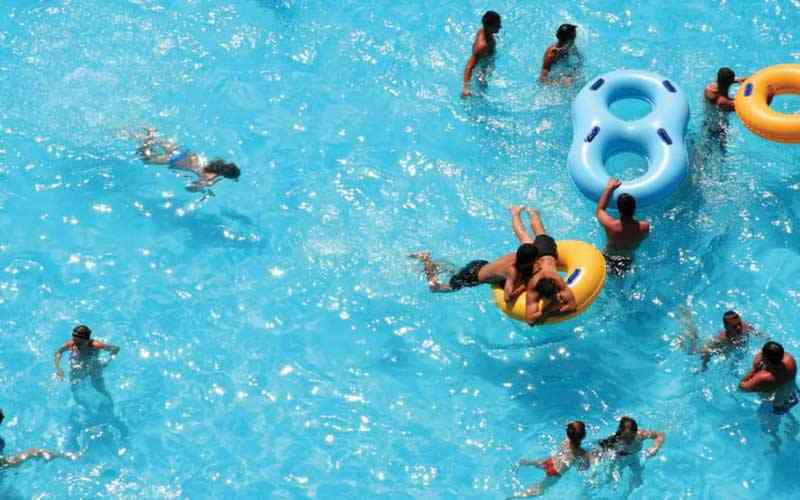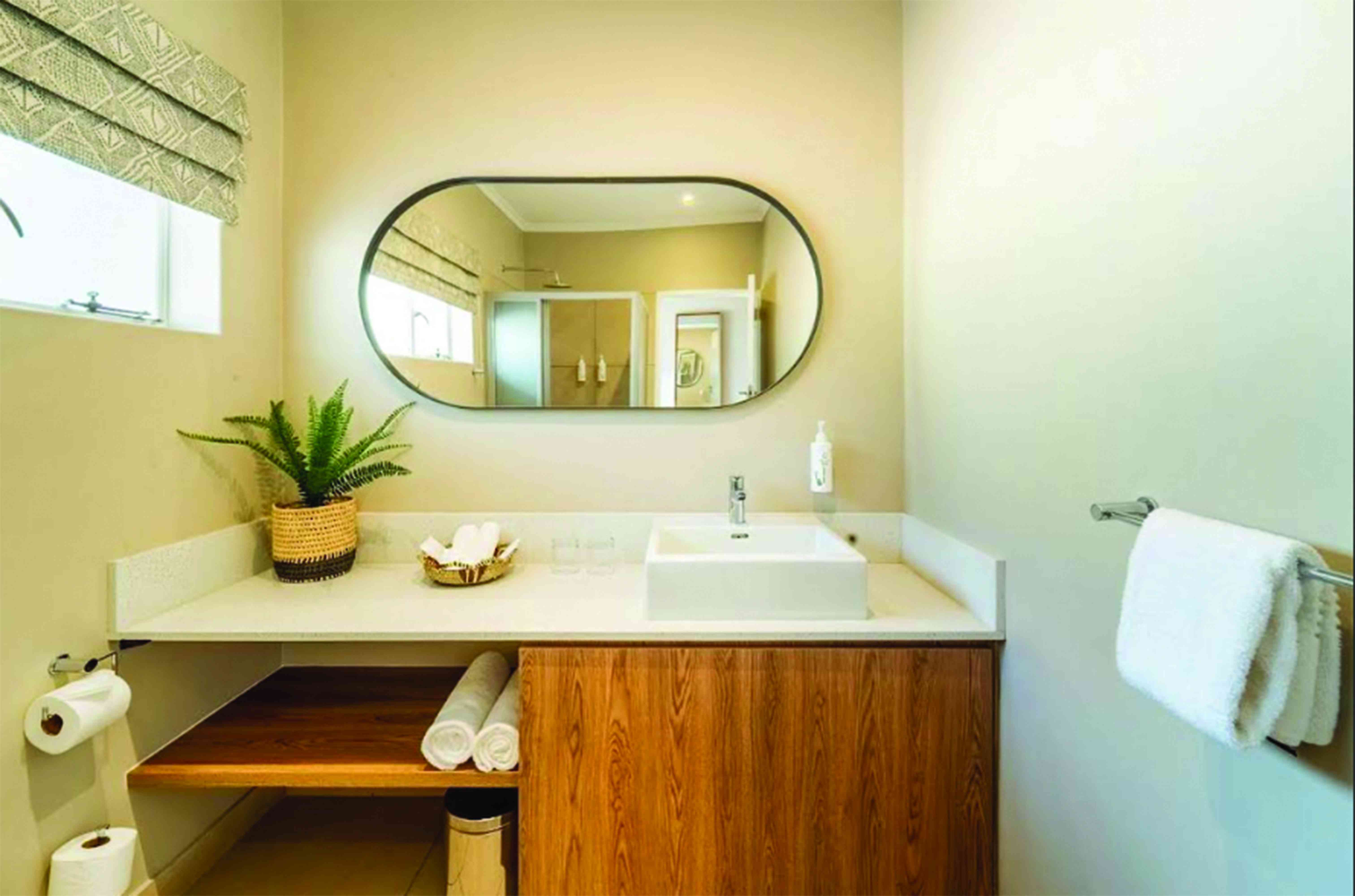
SUMMER is here. One of the best ways to cool off while having some great exercise is swimming. It is a fun way to spend time together as a family on a hot afternoon, enjoying the cool water and being together.
However, many people overlook how dangerous swimming can be. It is important to be safety conscious when you swim, especially if you have children around, who perhaps can not swim.
There are several measures you should take to ensure that swimming is a safe and pleasant experience.
Safety tips for swimming
Try to make sure you never swim alone. If children are taking a swim, there should always be an adult supervising them, who is able to swim and to respond quickly in an emergency. Preferably the adult should have been trained to react to a swimming emergency.
Always instruct your children to swim with a friend or sibling so they can look out for one another, if you are not in the pool with them. Besides being more fun to swim with a friend, this also ensures there is someone, who can help or summon help if something goes wrong.
You might want to relax while the kids swim but you should be within close proximity at all times. This should be the rule whether they are swimming in a pool, lake or any other water body.
Supervision is important even for older children, who are strong swimmers as they are prone to trying tricks, flips and dives, all of which can be dangerous.
- Zim swimmers fail to make the cut
- Swimmers exposed
- Zim swimming team scales up preps
- Chinese refurbish Mbare swimming pool
Keep Reading
Make sure children understand competing to see, who can hold their breath underwater the longest and similar games can be dangerous and should not happen, as it can result in drowning.
A swimmer, who holds his or her breath for too long or hyperventilates, that is breathes deeper or faster than normal, before going underwater is at risk of passing out underwater.
Children who swim competitively should learn proper breathing techniques to avoid problems during practices or swimming galas.
Never run on the pool deck. It can be slippery, especially when wet. Be careful going into in and coming out of the pool. Use the steps or a handrail if possible.Avoid climbing on slippery or unstable surfaces.
Look before you jump or dive into the water, especially if it is a natural pool or lake. Shallow water, underwater logs or big rocks are dangerous when you dive or jump in.
Check that there are not any ‘No Diving’ signs. Check the area each time before you enter the water, as swimming conditions may change.
Stay within your abilities. Swim only where you feel comfortable. Do not go further or deeper than you can handle. At lakes stay inside marked areas or close to the shore. Cold water or rough conditions may affect your swimming abilities.
Tell your children not to jump into the water to save a friend in an emergency. Doing so could lead to both of them drowning. They should call an adult. There should always be an adult with them who can swim.
Get out of the pool as soon as it starts raining or when storms threaten. Lightning can strike suddenly, even in the absence of rain. Take cover when a storm approaches and remain out of the water until at least 30 minutes after the last lightning is sighted or thunder heard.
Do not drink alcohol before swimming. Injuries involving alcohol are a common problem at both public and private pools.
Alcohol impairs judgement, coordination and balance. It affects your ability to swim well and can lower your body temperature. It slows down your reaction time and could put you to sleep, which is dangerous. It is not advisable to drink before swimming or when around water bodies.
Be aware of suction hazards. Never play around pool drains or skimmers. The filter pulls water through a drain and into pipes. Fingers, toes, arms, legs, torsos and hair could catch in the suction of these drains, causing drowning. Tie back long hair or wear a swimming cap. Never put your head underwater in a whirlpool or hot tub.
It is a good idea to show your children what the pool drain looks like and explain the importance of staying clear of it. Children's hair, bathing suits and even limbs can become stuck in broken or faulty drains, which can lead to drowning or serious injury.
If a drain cover is missing or broken or the drain seems to be operating incorrectly, report it immediately.
In addition to teaching children water safety, there are precautions you may take as a parent with a pool at home. Examples of pool safety equipment include fences, alarms, pool covers, float lines, life preservers and pool safety hooks.
Watch for underwater traps. Some railings, ladders or removable pool equipment can create small spaces that can trap people underwater, which could lead to drowning. If you notice underwater equipment that could trap you, alert the pool supervisor, owner or lifeguard.
Be aware of natural hazards. Bodies of water, such as lakes and rivers may have unknown dangers. This includes underwater logs, sudden drop offs, algae blooms or tidal currents, not to mention the danger in some cases from crocodiles or bilharzia. Check for any posted warnings and ask other people if they know of any trouble spots in the area.
Accidents can happen at anytime. If a drowning incident or pool-related accident occurs, bystanders are typically the first to react and respond. It is, therefore, important to have someone present,who is familiar with lifesaving techniques, including cardiopulmonary resuscitation (CPR) for children and adults.
Knowing how to perform CPR can be the difference between life and death.
Keep your pool clean, Dirty pools grow bacteria and other germs. Do not sweep dirt into the pool as you enter it. Wear a proper bathing suit, not street clothes or underwear. If you are swimming with infants, ensure that they are wearing a reusable or disposable swim diaper.
If you have been unwell, wait 48 hours after symptoms, such as diarrhoea or vomiting have stopped before you swim. Do not swim if you have an open sore or bandage or if you are suffering from a cold, have an ear or nose discharge or an ear infection.
Never bring food or drinks into the pool. This can create bacteria and attract pests. Do not use breakables, such as glasses or ceramic dishes in the pool. If these break, you may need to drain the pool to clear away small broken pieces.
- The information in this article is provided as a public service by the Cimas iGo Wellness programme, which is designed to promote good health. It is provided for general information only and should not be construed as medical advice. Readers should consult their doctor or clinic on any matter related to their health or the treatment of any health problem. — igo@cimas.co.zw or WhatsApp 0772 161 829 or phone 024-2773 0663










